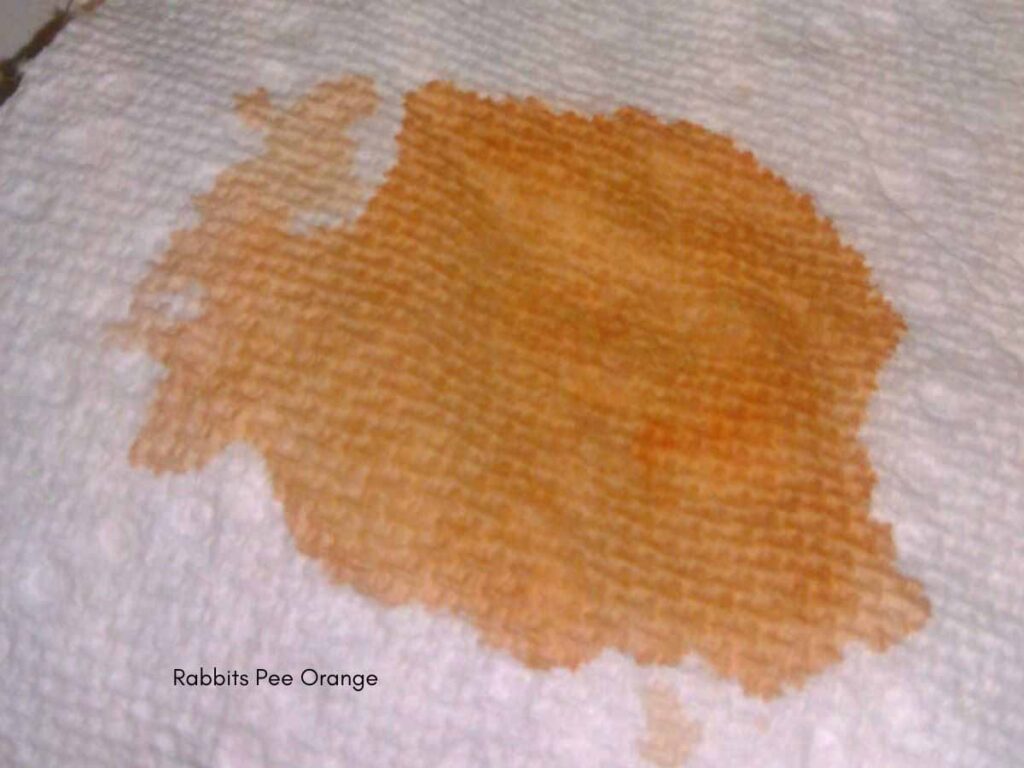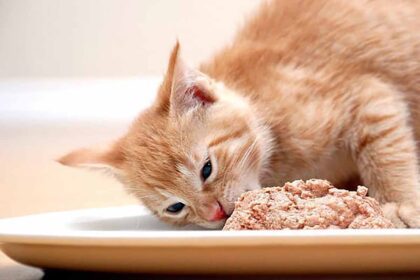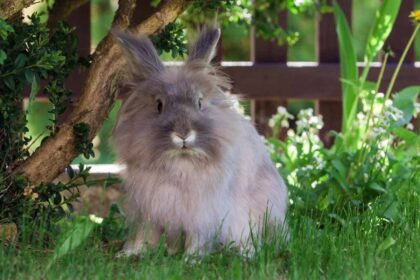As a devoted pet owner, it’s only natural to keep a close eye on your furry companions. So, when you notice something out of the ordinary—like orange urine in your rabbit’s litter box—it’s bound to raise some concerns. But fear not, rabbit owners! Orange urine is actually a fairly common sight and, in most cases, nothing to worry about.
Here, we’ll delve into the reasons behind orange rabbit pee and how to tell the difference between normal variations and potential health concerns.
Normal Rabbit Urine Color (Yellow, Red, Orange)
Rabbit urine can exhibit a surprising range of colors, from pale yellow to a deep, rusty red, with orange falling right in the middle. This variation is due to a combination of factors, including:
- Diet: Certain vegetables, like broccoli, cabbage, and dandelions, contain pigments that can turn rabbit urine orange or red. Up to 60% of rabbit owners report witnessing this change in urine color after introducing these vegetables.
- Genetics: Just like us, rabbits have individual variations in their metabolism, which can influence urine color.
- Hydration: Dehydration can concentrate urine, making it appear darker yellow or orange.
Red Flags vs. Normal Variations
While orange urine is generally okay, there are some situations that warrant a closer look:
- Blood in the urine: If the urine appears a bright red or has a pinkish hue, it could be blood. This is a medical emergency and requires a vet visit immediately.
- Cloudy or thick urine: This could indicate a bladder infection or other health problems.
- Straining to urinate: Difficulty urinating is a sign of bladder stones or a urinary tract blockage, both of which require veterinary attention.
Monitoring Your Rabbit’s Health
If your rabbit’s urine is orange and they are exhibiting normal behavior – eating, drinking, and pooping regularly – then it’s likely nothing to worry about. However, it’s always a good idea to monitor the situation for a few days.
Here are some tips
- Keep an eye on the color: If the orange color persists for more than a week, consult your veterinarian.
- Track their water intake: Ensure your rabbit has constant access to fresh, clean water. Dehydration can worsen concentrated urine.
- Observe their behavior: Any changes in behavior, like lethargy, loss of appetite, or difficulty using the litter box, warrant a vet visit.
Frequently Asked Questions
Now, let’s tackle some FAQs about orange urine in rabbits:
Is orange urine always a cause for concern?
Not necessarily. If your rabbit’s urine is only slightly orange and they’re otherwise acting normal, it could simply be a result of their diet. However, if the color persists or is accompanied by other symptoms, it’s best to seek veterinary advice.
How can I prevent orange urine in my rabbit?
Ensure your rabbit has access to fresh water at all times and provide a balanced diet rich in hay, leafy greens, and limited amounts of pellets. Avoid excessive treats and monitor their consumption of pigmented foods.
Should I be worried if my rabbit's urine is orange-red or pinkish?
Yes, any abnormal coloration beyond shades of yellow or orange warrants veterinary attention as it could indicate blood in the urine, which may be a sign of a more serious underlying condition.
Can stress cause changes in urine color?
Yes, stress can impact a rabbit’s urinary habits, leading to changes in color and frequency of urination. Minimizing stressors and providing a comfortable environment can help alleviate this.
Conclusion
Orange rabbit urine is often a harmless consequence of their diet. However, it’s important to be aware of the signs that might indicate a health concern. By monitoring your rabbit’s urine color and overall health, you can ensure your furry friend stays happy and healthy.













